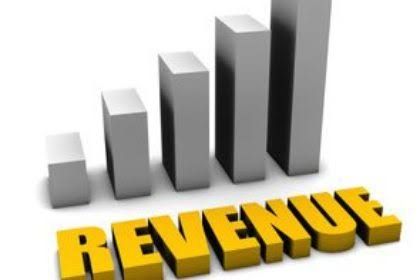Dr Ayo Abina, chairman of AACS, an international consulting and investment company, has said that Nigeria can generate a minimum of $134.3 billion revenue, adding that the country does not need to borrow to fund its 2023 budget.
The financial expert and former top banking executive said this in the AACS Fortnightly, a publication of his company.
Premising his submission on the earnings for 2022, Abina said in addition to the $45.6 billion earned from oil receipts and $22 billion collected by the Federal Inland Revenue Service (FIRS), Nigeria can earn additional $53bn by raising the tax-to-GDP collection ratio to 15 per cent without raising taxes, save $9.7 billion by removing fuel subsidies and save $4 billion by tackling oil theft.
“These amount to $134.3 billion revenue. With this, we won’t need to borrow to finance our 2023 budget,” he said.
Expatiating on this, Abina said, “The Nigerian GDP is estimated at $500bn, and driving that economy size should generate between 20 per cent to 25 per cent revenue. This assumes a minimum of about $100bn to $125 billion in the economy as revenue yearly.
“The projected 2022 budget was N17.1trn ($36.7bn), with N10.7tn ($23bn) as revenue, and N6.4trn ($13.7bn) projected to be financed through borrowing.
“In an ideal situation against the backdrop of the nation’s GDP, the budget could be financed without borrowings”.
Abina, who identified the six issues that the incoming administration has to focus on as revenue, fuel subsidy, realignment of exchange rate, oil theft, infrastructure and security, added: “According to the Federal Inland Revenue Service (FIRS), the agency collected $22bn in tax revenue (a massive 56 per cent increase year on year) in 2022. However, there could still be a capacity for another $53bn (projecting a tax-to-GDP collection ratio of 15 per cent) if the tax process is reviewed, with a deeper dive into waivers and concessions.
“According to OECD, Nigeria’s tax-to-GDP ratio of 5.5 per cent in 2020 was lower than over 31 African countries, including Uganda (11 per cent), Ghana (13.4 per cent) and South Africa (25.2 per cent). In the United States, it is 25.8 per cent and 33.6 per cent in the UK. There are a lot of improvements that can be achieved in collections without an increase in tax rates.
“Further, Nigerian National Petroleum Corporation (NNPC) reported that subsidies gulped almost $9.7bn, and an estimated $4bn was lost to oil theft in 2022. The National Bureau of Statistics (NBS) data puts oil sale receipts at $45.6bn (N21trn) for the same year.”
Abina stated that addition of these possible generated revenues would give a total of $134.3bn.
“This is outside of revenue lost to multiple exchange rate regime. This figure, run as an assumption against the 2023 budget of N21.8tn ($46bn), would mean that the entire budget of the year can be fully funded without borrowing. This size of revenue opens an avenue for healthy borrowing, which could provide a needed increase in the spending-to-GDP ratio of the nation from 9.1 per cent to about 35 per cent or $175bn.
“It would allow the nation to pay attention to its huge spending needs, and the consequent multiplier effect on possible double digit economic growth yearly, and further increase revenue generation. The US and UK spending-to-GDP ratio is put at about 34 per cent and 40 per cent respectively.”
Abina added that paying attention to revenue generation and tackling these issues would help the country to overcome its economic challenges.
“There is more revenue in the economy based on the size of the current GDP,” he said.
READ ALSO FROM NIGERIAN TRIBUNE




